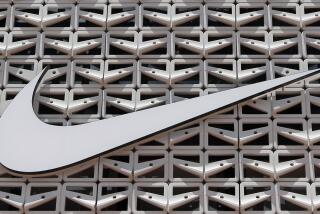Honda Losing Key U.S. Exec
- Share via
Honda Motor Co. said Tuesday that Thomas G. Elliott, its highest-ranking American executive and a key player in the Japanese automaker’s rapid growth, would retire next year.
Elliott, 62, will be succeeded by John Mendel, former chief operating officer of Mazda Motor Corp.’s North American sales unit in Irvine.
Elliott is second in command to American Honda Motor Co. Chief Executive Koichi Kondo and will work with Mendel until exiting the company. Until then, the 50-year-old Mendel will be Honda’s senior vice president for U.S. automotive operations, which are based in Torrance.
Mendel declined to comment and Elliott couldn’t be reached.
Analysts say that Mendel’s primary challenge will be to improve the pace of growth in Honda’s car sales.
He must “make the brand hip again,” said Wes Brown, an analyst with Iceology, a Los Angeles market research firm. “The soul it had in the 1980s and ‘90s has been lost a little” since the bland redesign of the Honda Civic in 2001 made it less attractive to younger buyers.
What’s more, Honda has been slow to compete in the thriving pickup truck market. Next year Honda will finally introduce its first pickup in the U.S.: a sport truck that uses a car-like unified body and frame construction for a smoother and quieter ride than a conventional truck.
Meanwhile, Mendel will have to “develop a strategy for Honda’s Acura division,” said Eric Noble, president of Car Lab, an auto industry research firm in Orange. Acura sales are rising this year because of three new models. But the line lacks bigger V-8 engines and rear-wheel-drive performance to match its European and domestic luxury brand competitors, Noble said.
Honda, the first company to sell a gas-electric-powered hybrid car in the U.S., also has fallen well behind rival Toyota Motor Corp. in hybrid sales.
Honda was a very different company when Elliott, fresh out of college in 1970, joined its then-modest U.S. sales division. At the time, Honda was best known for motorcycles and had just started selling boxy subcompact cars.
In 1988, Elliott was named executive vice president in charge of U.S. product planning, advertising, marketing and distribution.
He helped put Hondas “on just about every car shopper’s consideration list,” said George Peterson, president of AutoPacific Inc., an automotive market research firm in Tustin. Honda “has grown from a company selling little roller-skates-on-wheels to being a real car company” with an extensive lineup.
During Elliott’s tenure, the company’s sales have nearly doubled as the Honda Accord and Civic have become mainstay sedans known for their reliability. They have both generated loyal followings of repeat buyers. Elliott also helped guide the growth of Honda’s luxury Acura line.
Honda is now the second-largest import auto company in the U.S., behind Toyota. Last year Honda and Acura sold 1.3 million vehicles in the U.S., a number expected to reach 1.4 million this year. Indeed, Honda’s American sales have outpaced those in its home market of Japan every year since 1984.
Elliott is also credited with helping develop Honda’s often-copied strategy of keeping supplies tight, so that customers perceive demand to be high.
That policy has helped boost Honda sales but also contributed to a bribery scandal that rocked the company in the 1990s. Several top marketing executives had demanded payments from Honda dealers in the U.S. in return for shipments of hot-selling Honda and Acura vehicles. They pleaded guilty to federal fraud charges. Elliott was not implicated in the scandal.
Mendel, a 25-year veteran of Ford Motor Co., joined its Mazda unit in 2001.
In recent years, as Honda, Toyota and other Asian carmakers have grown in the U.S. and expanded their manufacturing operations, Elliott has insisted that they should be considered domestic transplants, not imports.
“As far as I’m concerned, ours are American products,” Elliott told Ward’s Auto News last year.






